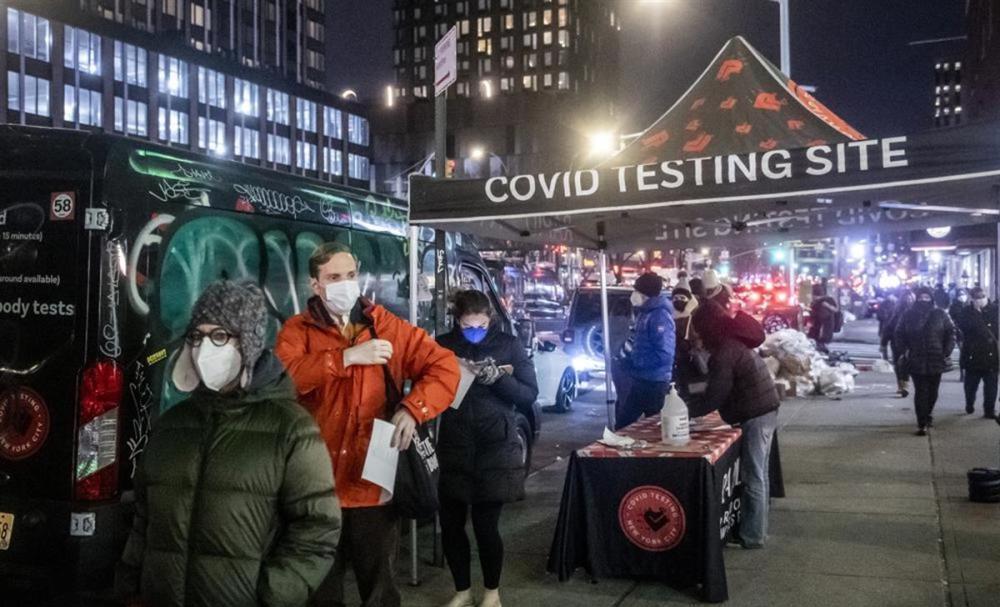Extremely eye news reporter Zhang Yang
More than a year after the vaccine was introduced, new covid-19 cases in the United States soared to their highest level on record, averaging more than 265,000 cases per day, a surge largely caused by the highly contagious Omiljung variant.

People are lining up for COVID-19 testing
According to data saved by Johns Hopkins University, the number of new cases per day has more than doubled over the past two weeks, surpassing the old record of 250,000 cases in a single day in mid-January 2020. Meanwhile, the number of COVID-19 deaths in the United States climbed from an average of 1,200 per day to about 1,500.
The rapid spread of the virus casts a shadow over Christmas and New Year, and thousands of flights have been cancelled due to shortages of people caused by the virus, people are unable to enjoy a normal holiday and have to curtail or cancel their celebrations, according to the Associated Press.
Dr. Fauci, one of america's top infectious disease experts, said on Dec. 29: "If your family and friends have been vaccinated, there is no need to cancel small family gatherings. ”
But he added: "If you're planning a Chinese New Year's Eve party for 40 to 50 people where everyone hugs and kisses and wishes each other a Happy New Year, then I highly recommend you don't do that this year." ”
The Centers for Disease Control and Prevention reported that the number of COVID-19 patients hospitalized in the U.S. is now about 60,000, half as in January. While hospitalization rates are sometimes recorded behind the number of cases, the data may reflect both the fact that the vaccine does provide protection and the likelihood that Omilon won't get people as severe as previous variants.
Public health experts will be watching the figures for the coming week to see how effective vaccines are in preventing severe COVID-19, keeping people away from hospitals and reducing stress on healthcare workers.
Bob Bednachik, a professor of epidemiology, health and wellness at Emory University, said data from the CDC has shown that even if vaccine effectiveness decreases over time, vaccinated people have far lower hospitalization rates than unvaccinated people.
Adeja, a senior scholar at the Johns Hopkins Center for Health Safety, said the likelihood of hospitalizations rising to the previous peak is extremely unlikely. Vaccines and treatments developed since last year have made it easier to contain the spread of the virus.
He added that even though hospitalizations have decreased compared to past surges, the virus could wreak havoc on hospitals and healthcare workers.
The situation elsewhere in the world is grim, especially in Europe, where WORLD Director-General Tedros Adhanom Ghebreyesus said he feared the combination of the Opichron and Delta variants would create a "tsunami" of case surges. This, he said, would "put enormous pressure on exhausted health workers and health systems on the brink of collapse".
People are getting COVID-19 vaccines
Several European countries, including France, Greece, the United Kingdom and Spain, also reported record case counts this week, prompting Greece, France, Germany and others to re-implement strict COVID-19 control policies.
WHO reports that nearly 4.99 million new cases were recorded globally from 20 to 26 December, an increase of 11% over the previous week. But the agency also notes that in South Africa, where Omicron was first detected a month ago, new cases have declined.